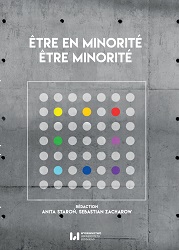L’« enfant terrible » de Galicie. Les idées de modernité dans les discours sur la culture de Leszek Dunin Borkowski
The “enfant terrible” of the Galician Negotiations on a new cultural reality in the speeches of Leszek Dunin Borkowski
Author(s): Tadeusz Półchłopek
Subject(s): Studies of Literature
Published by: Wydawnictwo Uniwersytetu Łódzkiego
Keywords: Borkowski Leszek Dunin; “enfant terrible”; Galicia; literature; minority; romantic discurses; « enfant terrible »; Galicie; littérature; minorité; discours romantique
Summary/Abstract: Kazimierz Wyka called Leszek Dunin Borkowski the “enfant terrible” of the Galician society. Entire his life (both as an artist and a politician), being an idealistic romantic, he discoursed on constructing the new social reality understood as accomplishment of a romantic image of the world and such a need of directing human actions. Borkowski was in ‘the minority’ of his own sphere (Parochialism, 1843), venal writers (Cymbalada, 1845), religious institutions (Lech’s Prophecies, 1848) and political correctness (The Rakuski Legislative Seym with Special Attention to the Polish Mission, 1849; The First Slavic Seym in Lvov 1865–1866 by an Eyewitness, 1884). He was also in ‘the minority’ as a pertinacious critic of acknowledged authorities (A Little Bit About Stanisław Tarnowski’s Experience and Contemplations, 1892; Because of the Florian Ziemiałkowski’s Open Letter to Józef Szujski, 1867).
Book: Être en minorité, être minorité
- Page Range: 83-92
- Page Count: 10
- Publication Year: 2017
- Language: French
- Content File-PDF

